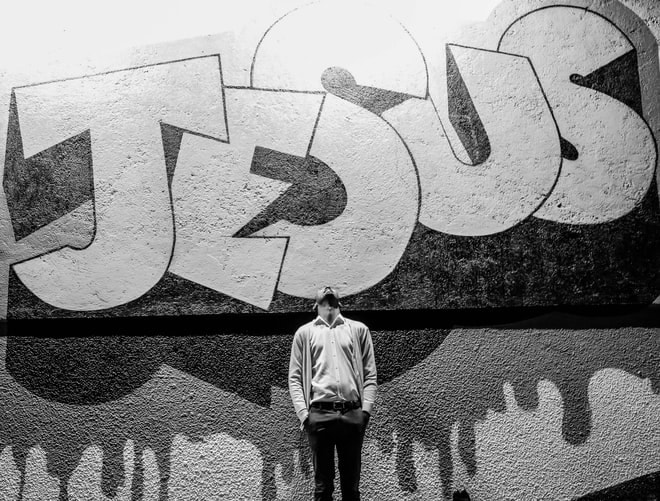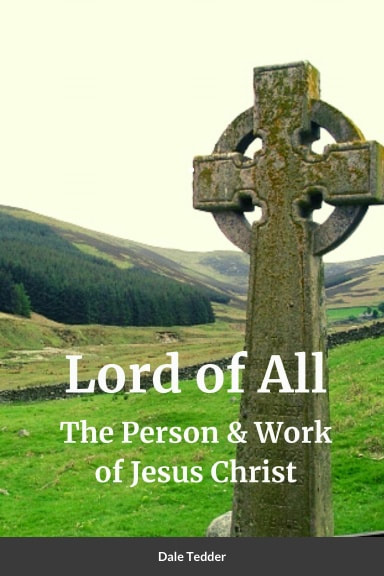|
From my new book, Lord of All. Click here to buy the book and Bible study so you can use it devotionally or work through it with a small group of Christian brothers and sisters… or to even give away to someone who desires to learn more about Jesus. Two Questions Jesus had just fed five thousand people. Before that he had been teaching and preaching about the Kingdom of God. On top of that he had been healing them of their illnesses. As you can imagine, the people followed Jesus everywhere he went. And why wouldn’t they? He was a blessing to them. (Luke 9:10-17) But Jesus needed to get away and be alone. Well, alone with God. He needed to pray. Thus, we read in Luke 9:18-20 he and his disciples were able to get by themselves, and it was during that time he asked his disciples two questions. What Do The Crowds Say? The first question was, “Who do the crowds say I am” (v. 18)? Jesus wanted to know about the people they had just spent the day with. All those people he had been healing, teaching, and feeding, who did they think Jesus was? They answered, “John the Baptist. Others say you’re Elijah. Still others say that one of the other prophets has risen” (v. 19). Those answers weren’t unexpected. Israel long believed that before God’s Messiah would come, he would be proceeded by an Old Testament prophet. It seems the people believed at least this: Jesus was no ordinary man. He was special. He could do great miracles. He could heal. He taught as one who had authority. And he fed them. Make no mistake about it, this was no ordinary man. But Jesus wasn’t all that concerned, at the moment, about what the crowds thought of him. He was going somewhere else with his question. He knew how fickle the crowds were. In fact, there was another time Jesus fed thousands and it seemed the crowds were all for him. Then he started teaching them hard things and one by one, they left him. They said things like, “this teaching is too hard, who can accept it” (John 6:60). What About You? Jesus wasn’t as concerned about the opinion of the crowds at this particular moment in time. Instead, he turned to his disciples and asked them, “But who do you say that I am (v. 20)?” It was as though he was saying, “I chose you and you’ve been following me around for a long time now. Who do you say that I am?” That’s the question, isn’t it? Perhaps the most important question ever asked. It’s a question each and every person must answer. The answer matters. The right answer matters, a lot. Peter’s Answer Peter knew the answer. At least he was pretty sure he did. As Peter was prone to do, he jumped in and answered, “The Christ of God” (v.20 ESV). Christ is the Greek word for the Hebrew word, Messiah. And they both mean, God’s Anointed One. Peter and the disciples knew Jesus wasn’t just a prophet who came to make way for the Messiah. He was the Messiah. Rome was going to be in trouble. Why? Because God’s Anointed One, the Messiah, was going to come in great power. He was going to conquer God’s enemies and restore Israel to her former glory. You better believe, Rome was in trouble! That was the prevailing understanding of the Messiah among the Jews at the time. That’s why his coming was so important and anticipated. Not That Kind of Messiah But Jesus threw a curve at the disciples. Peter’s answer was right, but was only partial. The Messiah was, in fact, the Son of God, the Savior of the World, and the Lord of heaven and earth. But Jesus didn’t come to triumph over Rome militarily. He came to be rejected by the elders and chief priests and scribes. He came to die on a Roman cross (Luke 9:21-22). That was all Peter needed to hear. In Matthew’s Gospel, Peter, who had just confessed Jesus was the Christ, now rebuked Jesus for saying he was going to Jerusalem to die (Matt. 16:23). Unacceptable. Jesus responded with those famous words, “Get behind me, Satan” (Mark 8:33). Jesus knew why he had come. If Peter had been paying attention, he would have also. Right after Jesus told the disciples he would be killed, he said, “and on the third day be raised” (Luke 9:22). Jesus the Messiah, was Son, Savior, and Lord, but he was also the Suffering Servant of Isaiah 53. For him to be the victorious Messiah of God, he had to die first. And in his death, sin, hell, Satan, and even death itself would be defeated. His resurrection from the dead would confirm it. God would have his victory! Eternal and Temporal Significance It matters that we know this about Jesus. It has both eternal and temporal significance. It was with an eternal perspective in mind that Jesus told Martha in John 11, “I am the resurrection and the life. Whoever believes in me, though he die, yet shall he live, 26 and everyone who lives and believes in me shall never die. Do you believe this?” (vv. 25-26) He wanted to know if she believed it. Believing in Jesus, according to Jesus, results in eternal life. The most famous verse in the whole Bible reminds us, “For God so loved the world, that he gave his only Son, that whoever believes in him should not perish but have eternal life.” (John 3:16) What we believe about Jesus, who he is and what he taught, has eternal significance. Yet who we believe Jesus is has enormous consequences for this world as well. Jesus says in Luke 9:23, “If anyone would come after me, let him deny himself and take up his cross daily and follow me. Deny, Take Up, and Follow A disciple of Jesus Christ is a student and follower of Jesus Christ. That’s literally what the word “disciple” means. We’re not primarily called to be disciples of the church or of values or principles. Instead, we’re disciples of a Person, and who he is matters. In our text, Jesus taught that if we’re his disciples, we’ll do three things. First, we’ll deny ourselves. We’ll no longer be self-centered, but God-centered. God alone will set the agenda for our lives. We won’t think primarily of ourselves first, but God. Everything will be ordered in relation to God. Second, we’ll take up our cross daily. What do you suppose was going to happen to a person in the Roman Empire who was carrying a cross? They were going to their death. Jesus was painting a picture of the humility and submission he expects of those who follow him. Nobody carrying a cross was proud and arrogant. They were marching to their death. Third, we’ll follow Jesus. This means identifying with Jesus and following him, wherever he leads us, regardless of the consequences. In Luke 14, Jesus told a large crowd they needed to first count the cost of being his disciple before they signed on the dotted line. Why? Because it’s hard. It requires dying, dying to ourselves, our agenda, our sin and rebellion. Furthermore, we must actually believe Jesus is who he says he is. This is not a sterile intellectual belief. It’s a belief that embraces and trusts in him. It’s a faith that places our lives in his hands because we believe he alone is our only hope. That requires humility on our part. That requires submission to him and following him wherever he may take us. Are you willing to do that? Matthew, Mark, and Luke, all report the same thing. First Jesus asks his disciples who he is. Then he teaches them some more about who he really is. Then he tells them they must deny themselves, pick up their crosses and follow him. Jesus never teaches on discipleship apart from connecting it to who he is. Or, to put it another way, he always grounds our discipleship in his Person and Work. Who do you say Jesus is? That’s the most important question you will ever have to answer. What will your answer be? The purpose of this study is to help you better understand the Person and Work of Jesus Christ, in order to know Christ more clearly, love Christ more dearly, and to follow Christ more nearly (Richard, Bishop of Chichester). Another purpose is to equip you to give a faithful answer whenever God provides you with an opportunity to share your faith in Jesus Christ. Thanks be to God for the Person and Work of his Son, our Savior and Lord, Jesus Christ.
0 Comments
|
Click link above to order book and study guide for your church or small group.
Categories
All
Archives
February 2023
|


 RSS Feed
RSS Feed
